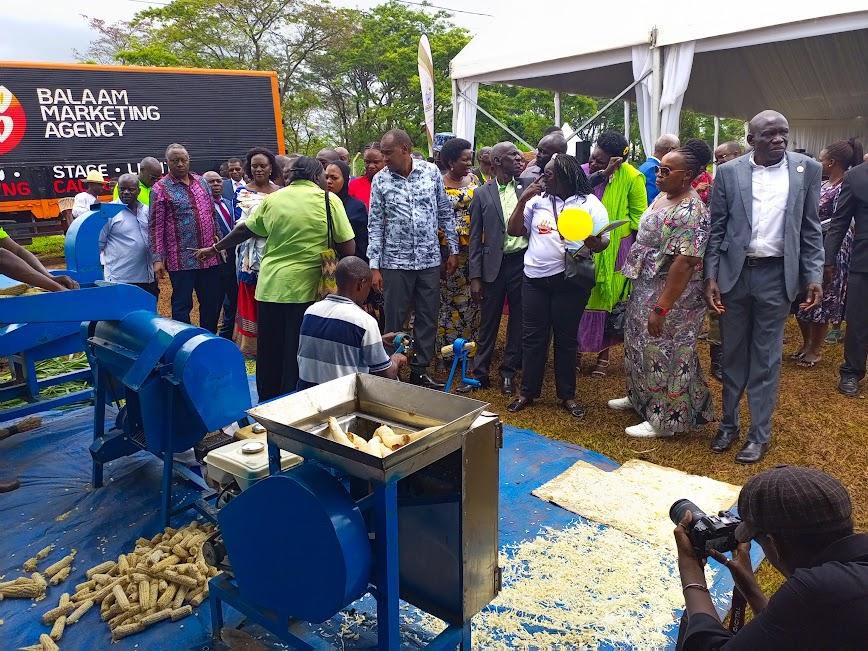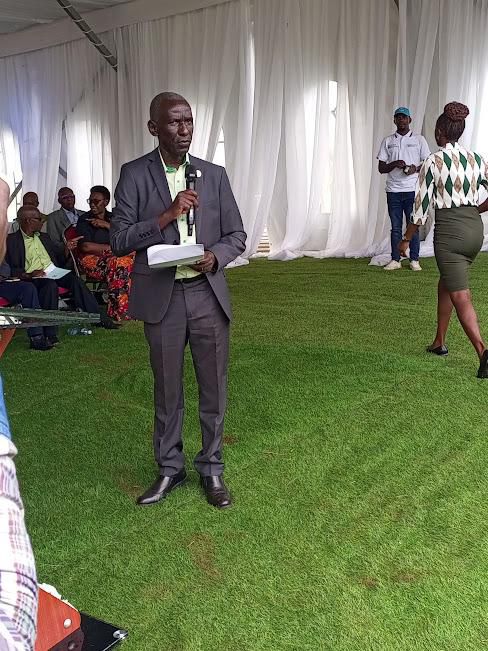Minister Tumwebaze calls for national recognition of agricultural researchers
)
Such researchers whose work has led to the discovery of new seed and crop varieties, vaccines, fertilizers, and other innovations, Minister Tumwebaze, need to be idolized at the national level.
“People think production is about picking a seed and planting it but most do not know where these seeds come from and the process that leads to these seeds,” said the minister.
“We need to have the names of these researchers to be forwarded to the government so that they are honored with national medals at the different government functions.”
Hon Tumwebaze made these remarks on Monday, October 16 while presiding over at the World Food Day celebrations held at the National Coffee Research Institute (NaCORI) in Mukono district.
At the event, the minister awarded medals to a group of researchers behind new seed varieties which were officially launched at the same function.

The new pasture, rice, maize, and sweet potato varieties set to be rolled out for uptake by farmers, were hailed for being drug and drought-resistant and also highly nutritious.
Some of the researchers who received medals for their work include Dr. Julius Serumaga, Samson Ojok, Annet Nakayima, Lwanga Charles Kasozi, and Arnold Katungisa, among others.
“These are people who work hard, but you never see them on social media,” remarked Minister Tumwebaze.
Hon Tumwebaze on the other hand, called upon Ugandans, especially those who own land to complement the work being done by the researchers, by opening up more land for agricultural use.
“We still have a lot of idle arable land which is not yet opened and cultivated. Even if our uptake for fertilizers and improved seeds is still low, if we we opened more land and planted it with coffee, we would have 20 million bags in no time,” he said.
Dr. Yona Baguma, the NARO Director General highlighted a number of achievements that the body has seen in recent years; but also called for increased funding from the government to enable them to optimise their output.

Baguma noted for instance that in the recent past, they have developed 10 coffee disease-resistant varieties which have contributed to the increase in coffee yields from 1.5 tons to 3.9 tons per hectare.
“We now have a record of 289 released crop varieties and all these have contributed to the food security of this country and increased incomes of farmers,” he said.
Baguma added, however, that due to limited funding, some work has remained undone.
“According to our strategic plan, we desire to have a funding level of Shs. 3 billion annually, but now we are at a level of Shs. 166 billion. We believe if we are given that resource we should be able to generate more technology and innovations to continue to improve agriculture in this country,” he said.
The event was attended by representatives from the World Food Program, the Food and Agricultural Program, the EU and other development partners, MPs, local leaders and residents.
)
)
)
)
)
)
)